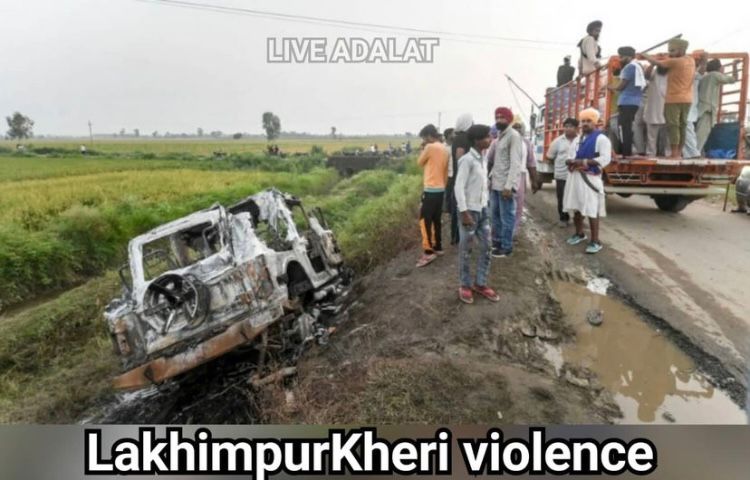The Supreme Court on Monday said that they are not satisfied by the status report filed by the Uttar Pradesh Government on the Lakhimpur Kheri violence that took place on the 3rd of October.
The Supreme Court has ordered that a judge of a different High Court will be given the charge of monitoring the proceedings till the chargesheet is filed
Chief Justice of India NV Ramana and Justices Surya Kant and Hima Kohli had expressed their displeasure over the steps taken by the Uttar Pradesh government in investigating the Lakhimpur Kheri incident in which eight people died, including four farmers during farmers’ protest.
CJI NV Ramana, Justice Surya Kant and Justice Hima Kohli said that the investigation is “not going the way we expected”. The bench further said that the forensic lab reports, the video evidence and the mobile phones of all the accused have not been seized.
Only one accused’s phone is seized. What about others? Have you not seized? Only one accused had mobile phone?
Justice Hima Kohli
Senior Advocate Harish Salve, appearing for the Uttar Pradesh Government replied that some of the accused said that they did not have phones but the CDRs have been obtained. The accused have thrown away the phones but from their CDRs, their locations are traced.
The bench proposed an appointment of a retired judge of another High Court so that no overlapping of evidence takes place.
What it appears to us is that this SIT is unable to maintain an investigative distances between FIR 219,220 and third case. If this kind of process continues, it will be a case of weighing the oral evidence in one case against the other, to ensure that evidence in 219 is recorded independently from 220 and there is no overlapping and no intermixing, we are inclined to appoint a retired judge of a different high court to monitor the investigation. Somehow, we are not confident of State judiciary overseeing…let a retired judge of different high court monitor.
Salve said that he will notify the State Government about the decision of the bench and will get instructions from the State Government regarding the same.
The matter will be further heard on 12th November, Friday.
On Wednesday, October 20, the Supreme Court asked the Uttar Pradesh government to record the testimonies of the witnesses in the Lakhimpur Kheri case before a judge and to safeguard them.
The Supreme Court issued the directives while hearing a PIL on the violence in which eight people, including four farmers, were murdered during a protest on October 3.
The status report was delivered to the court in a sealed cover by senior counsel Harish Salve, who was representing the UP government. The Supreme Court also questioned the delay in recording further witnesses’ testimony under Section 164 of the IPC.
Also Read : NCB ordered an investigation into extortion allegations; Sameer Wankhede denied judicial relief relying on a witness affidavit
When asked why only part of the 44 witnesses was subject to Section 164 of the IPC (recording of confessions and statements before a magistrate), Salve responded: “Your Lordships were concerned that they were being too easy on the accused. All of the suspects have been arrested. There are currently a total of ten accused inside.”
Salve went on to say that two crimes are being investigated: the first, in which automobiles ran over farmers, and the second, in which farmers attacked individuals from the cars.
Salve also informed the court that ten persons have been arrested in connection with the case so far, four of them are in police custody.
Salve stated that if the case is heard next week, further statements would be taken. The case will now be considered by the court on October 27th.
When questioned why the accused were not held in police custody for a longer period of time, UP state counsel Garima Prashad stated that they had been held for three days and had been subjected to appropriate questioning.
The court was informed that the accused’s phones had been confiscated and that there were several videos that would “make the position plain.”
The UP government, represented by senior counsel Harish Salve and Garima Prasad, was urged by a bench led by Chief Justice N V Ramana to record the testimony of additional relevant witnesses before judicial magistrates under Section 164 of the CrPC. The court told Salve to transmit its concerns to forensic labs and specialists on the creation of reports on the incident’s electronic evidence, and also directed the state government to file its report on two allegations, including the lynching of a journalist.

